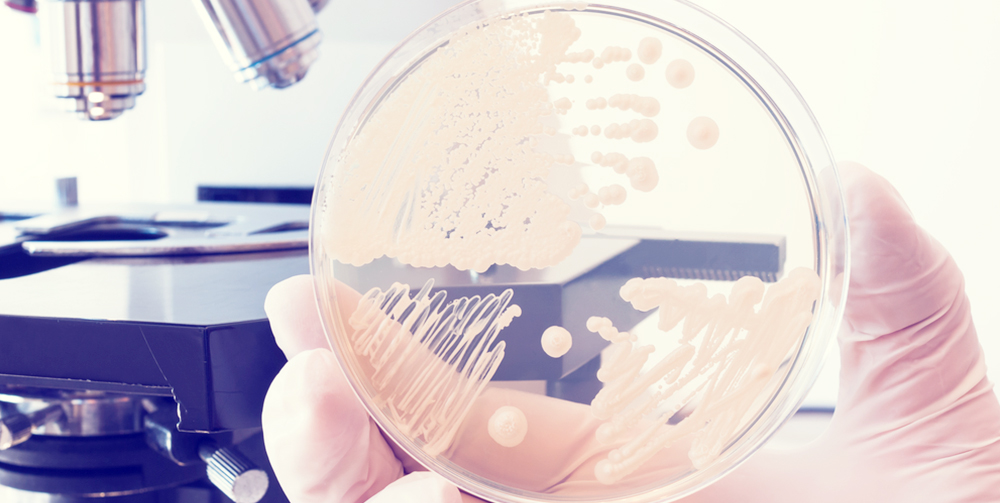Moulds, yeast and fungi. It seems that everywhere moisture, warmth and darkness combine, there they are! The only good they ever seem to do is to help us make wine, beer and bread, which is by no means a small task.
But have we underestimated the power of these little fellows to cause harm and chronic illness in our patients? Battle lines have long been drawn between immunologists and gastroenterologists on the one side who tell us that candida and related organisms are simply not a problem, and complementary and integrative practitioners on the other side who often regard candida as the source of all evil and illness! Neither are correct, so we need to find that reasonable balance for our patients.
Nearly every woman will be aware of one very particular problem that fungi can cause, namely thrush. Sometimes this is a simple-to-manage superficial vaginal or oral infection, typically following antibiotics. It is most commonly seen in women who are taking oestrogen, such as the oral contraceptive pill or hormonal replacement therapy. In fact, Candida albicans is a peculiar fungus that has receptors for human oestrogen, which surprisingly acts as a growth factor for candida.
This is surprising. What is a “lower life form” doing with receptors for a molecule intimately involved with health and reproduction in humans? It does suggest that humans and candida have grown up together, or co-evolved, and that candida has taken one of our molecules and used it to its advantage.
The vagina, however, simply reflects what is going on in the bowel and it is no coincidence that the anus and the vagina are so closely collocated. It is not the fungi, per se, that are the problem. It is the proliferation of the fungi relative to other normal microbes that set the stage for the itching, burning and persistence of thrush.
In normal circumstances, a healthy balance of the bacteria, archaea and fungi provide the “starter culture” for newborn babies to pass through and take their first sip of living microbes. A healthy bowel, best propped up by probiotics and/or living fermented foods in the final months of pregnancy, allows the baby to start life with a diverse microbiome, good protection against infection, and a small factory of microbial workers to ensure that the immune system is stabilised and that growth and development are enhanced.
This is one reason that unnecessary caesareans place a baby’s health at risk. The starter culture ingested by the baby is perfectly matched to the breast milk that follows, and my own profession’s predilection for sterility and neatness is directly at odds with nature’s preference for mess and microbes.
Helping kids and adults retrieve the normal balance between these different domains of life, and establish their own complex ecosystem within the gastrointestinal tract, seems to be the work that we integrative and complementary health practitioners are doing every day of our working lives. In part, the problem is that we cannot easily determine what the imbalance is, and it is very difficult to infer what should be done to stabilise and normalise the gut microbiome.
Some technologies are emerging that purport to be able to tell us about biodiversity of the gastrointestinal tract, and we even have some tantalising papers published in Nature a year or two back suggesting ways in which the diet may be manipulated to broaden that gut biodiversity. It is tempting to think that we should take these kind of recommendations, but the evidence is still not strong enough to support prescription for good health outcomes, including obesity, diabetic control and inflammation.
It is probably worth saying that reducing sugars and starches in the diet, minimising antibiotic use, and avoiding oral oestrogen growth factors would do a lot to improve gastrointestinal function in most of our patients. In fact, most people generally. Simple sugars were a part of the diet only during summer months for most individuals over human history, but it is now the dominant “nutrient" on the supermarket shelves. It is a very difficult job to wean our patients off sugars, in part because the sugar fermenters in the gut make their displeasure known and felt as they lose their grip on the microbiome makeup.
The reduction of simple sugars and simple starches in the diet is a cornerstone of good management of the fungal overgrowth in the gut. Good long courses of probiotics following any necessary antibiotics is another way of ensuring that the balance is not lost for prolonged periods. The current movements to living foods like kefir, sauerkraut and pickles is an excellent trend, but not for everybody. Probiotics in the form of supplements play an important part in the re-establishment of a normal gut ecology, and often require many months of persistence to regain lost ground. However, it is the diet that maintains the balance.
This definitely harks back to Hippocratic aphorism, "Let food be thy medicine and medicine be thy food”. It's strange how many thousands of years it takes to rediscover the basic wisdoms of the health sciences, and how little medical care is needed for the people who follow those basic principles.
Please note: This is an opinion piece based on the personal views of Dr Mark Donohoe
DISCLAIMER:
The information provided on FX Medicine is for educational and informational purposes only. The information provided on this site is not, nor is it intended to be, a substitute for professional advice or care. Please seek the advice of a qualified health care professional in the event something you have read here raises questions or concerns regarding your health.


